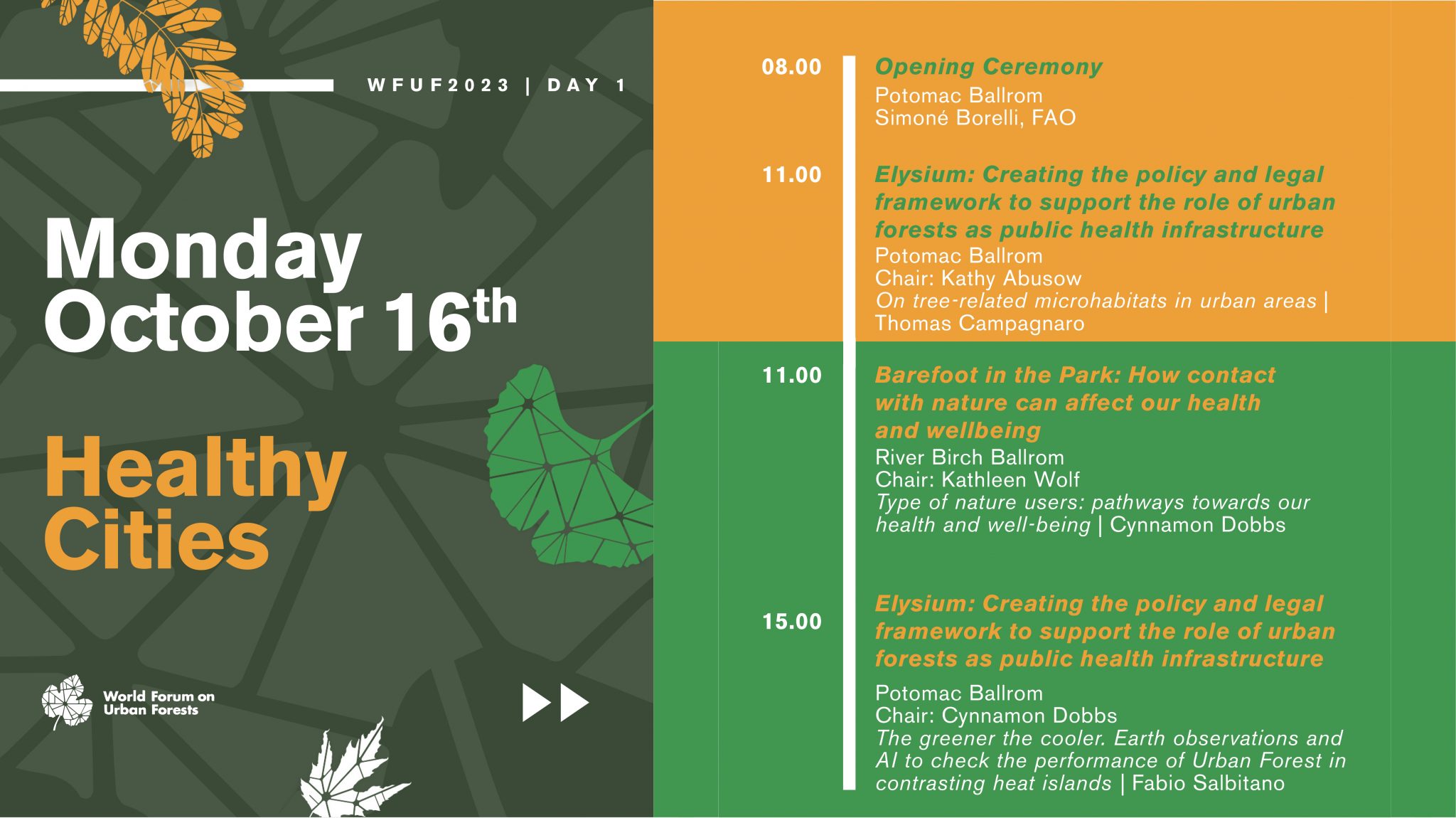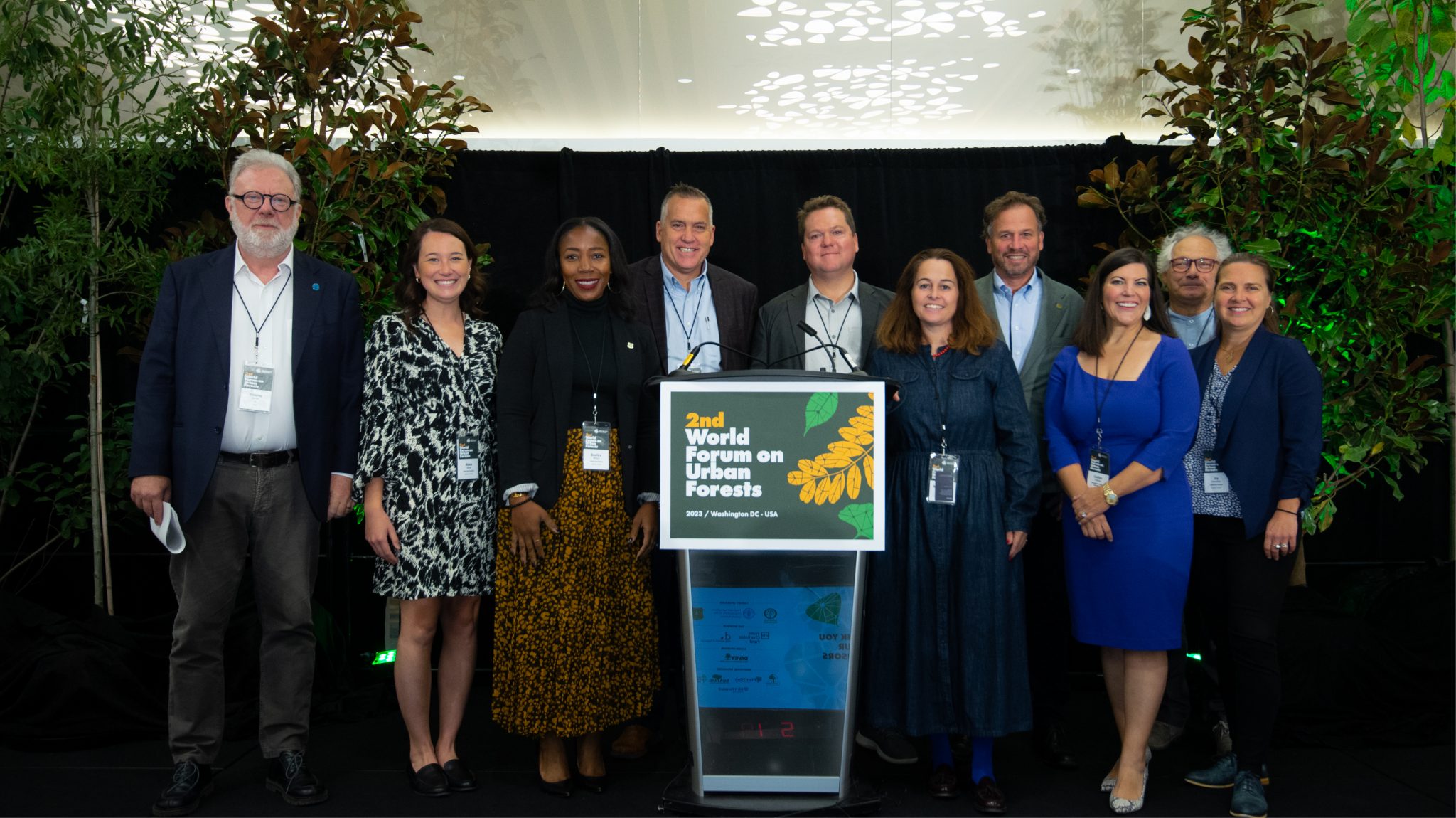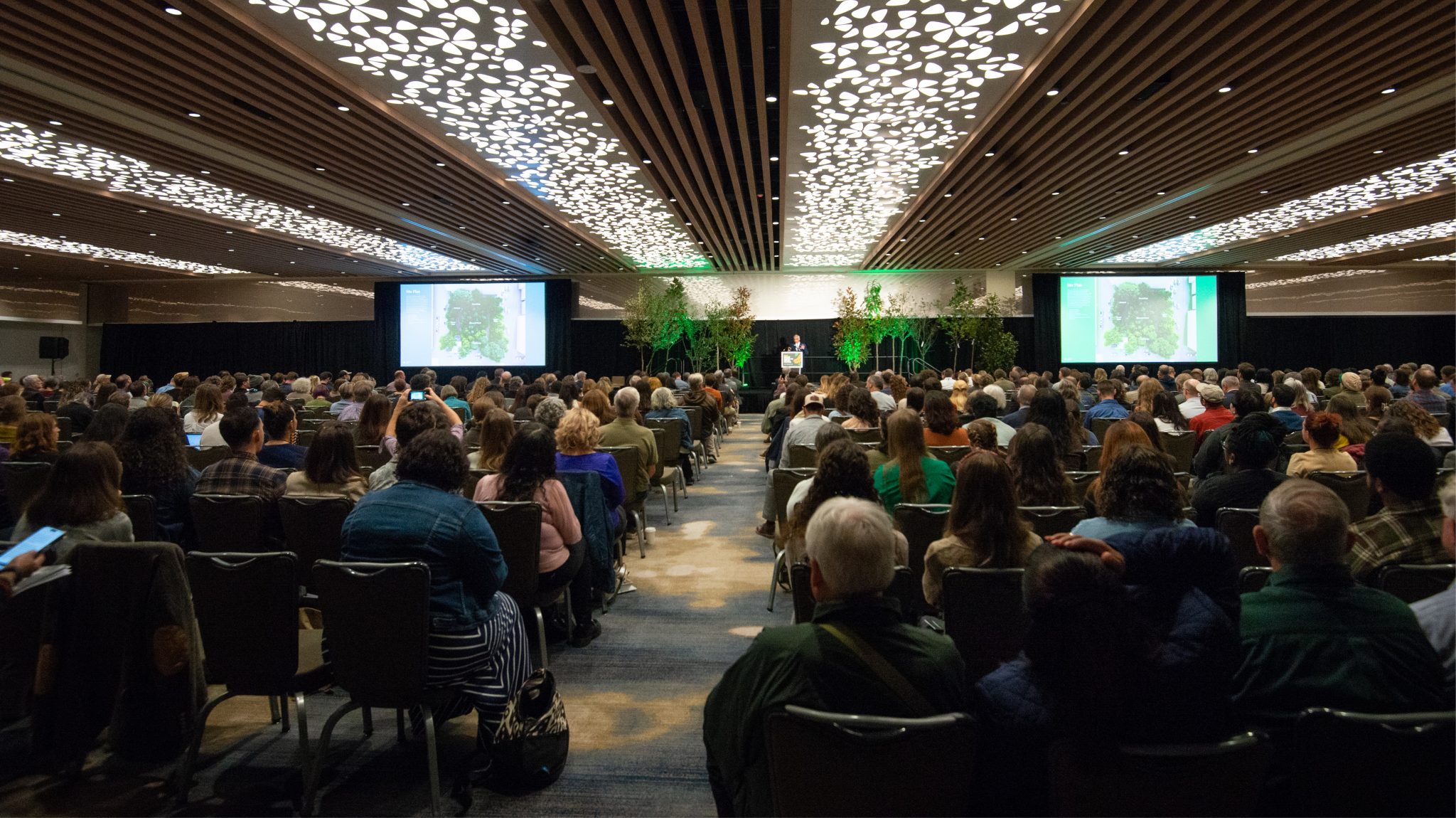Monday October 16th saw the first day of the World Forum on Urban Forests (WFUF2023) in Washington D.C., themed Healthy Cities.
Organised thanks to the collaboration of FAO, Arbor Day Foundation, the United States Forest Service (USFS), the Smithsonian Institution, the Politecnico di Milano, the Italian Society of Silviculture and Forest Ecology (SISEF) and the International Society of Arboriculture (ISA), this second event – following the 2018 Forum held in Mantua – has as its main theme Greener, Healthier and Happier Cities for All, to emphasise the importance of building inclusive cities in which the ecosystem goods and services of forests and trees are fairly and equally available to all city dwellers.
The event, of which Stefano Boeri Architetti is a technical partner, includes Stefano Boeri as a member of the Scientific Committee.
The first day saw presentations and speeches focusing on public health in cities and the role of vegetation in ensuring greater liveability for citizens.
Among the events:
h:11.00 | Elysium: Creating the policy and legal framework to support the role of urban forests as public health infrastructure | Chair: Kathy Abusow | On tree-related microhabitats in urban areas – Thomas Campagnaro
h:11.00 | Barefoot in the Park: How contact with nature can affect our health and wellbeing | Chair: Kathleen Wolf | Type of nature users: pathways towards our health and well-being – Cynnamon Dobbs
h:15.00 | Elysium: Creating the policy and legal framework to support the role of urban forests as public health infrastructure | Chair: Cynnamon Dobbs | The greener the cooler. Earth observations and AI to check the performance of Urban Forests in contrasting heat islands – Fabio Salbitano
Among the topics discussed:
Aruni Bhatnagar (University of Louisville), presented the Green Heart project, in which the effect of urban micro-forests in the neighbourhood was monitored, studying the arrangement of vegetation to maximise Co2 absorption.
Yehan Wu, landscape designer, on the other hand, presented strategies to reduce the temperature (about 2 degrees) through the orientation and distribution of trees along main and side streets.
Simone Borelli, FAO, and Fabio Salbitano, SISEF, opened the Forum, and emphasised that cities are hosted by nature, and not vice versa, which is why it is necessary to think of cities as complex ecosystems, in which urban forestation plays a key role.
Andrea Mechelli, professor of Early Intervention in Mental Health, emphasises the role of urban forests in improving the mental health of citizens in the long term.
Thomas Campagnaro, Research Associate at the University of Padua, presents the micro-habitat of living species that inhabit urban trees, emphasising the role of urban forests as a true biodiversity hotspot
For more information: www.worldforumonurbanforests.org



